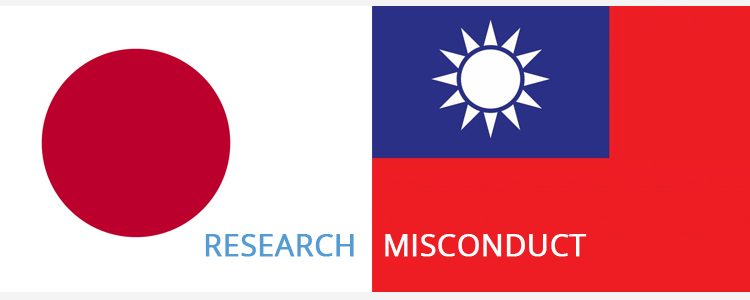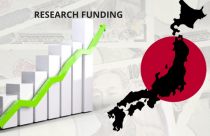Japan and Taiwan Seek to Root Out Research Misconduct

It is important that members of the research community and the general public trust the results of academic research. For the most part, researchers conform to rigorous ethical and scientific standards in the conduct of their work. However, cases of academic fraud exist and can be problematic for the community as well as cause irreparable damage to the reputation of those involved.
The results of a survey conducted by Takaaki Matsuzawa, leader of the 1st Theory-Oriented Research Group based at the National Institute of Science and Technology Policy in the Japanese ministry of education indicates that academic fraud is on the rise. There were fewer than three cases of scientific misconduct a year until the 1990s. In 2012, there were 20 cases. The fields of medicine and the life sciences were responsible for 43 of the 58 reported cases of scientific misconduct between 1977 and 2012.
The Japanese approach to the issue of increased academic fraud is to conduct a multi-center study involving Nagasaki University, Shinshu University, Niigata University, Kobe University, Tokushima University, and Kyushu University. Together, these six institutions will rely on the work of experts in psychology, legal studies, information science, and ethics to determine what leads scientists to disregard research ethics. Information will be gathered by interviewing the researchers involved in 20 known cases of scientific misconduct in Japan and elsewhere. Data will also be collected via administration of a written survey that will be distributed to a few thousand researchers and graduate students at approximately 500 institutions in Japan.
A 2014 investigation conducted by the University of Tokyo revealed that academic fraud can happen when superiors pass instructions to students in a coercive manner. Students then feel compelled to deliver the results that their professor expected, which is one reason why research misconduct can occur. This new collaborative study will receive ¥30 million over three years from the Japan Agency for Medical Research and Development. The results of this study should be available in 2019.
Taiwan has also responded to scientific misconduct by establishing an Office of Research Integrity to collect data and provide a reference point for future scientific studies. The Taiwanese Minister of Science and Technology, Chen Liang-gee, announced the launch of the office that has been given the mandate to collect information from around the world concerning research integrity including case scenarios and treatment solutions. This data will be shared with research project heads. The Office will also create a database of different examples of academic fraud to serve as a reference for case reviews. Minister Chen said he hopes that the office would play a role in helping academia to return to its mandate of seeking the truth.
In addition to promoting ethical research conduct, the Office of Research Integrity will also be responsible for improving the international competitiveness of research personnel and attracting research talent from abroad. Chen has suggested sending at least 50 Taiwanese PhDs to Silicon Valley companies to broaden their experience. The ministry also has plans to invest US$162 million in artificial intelligence and an international innovation and research center among other things.









